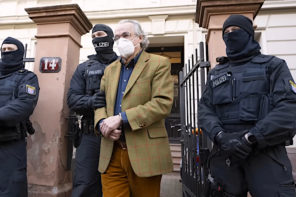After the brutal attacks in Paris on November 13th, more and more people are worried about an ISIS attack in our country, and are asking big questions: Where does the movement come from? What is its connection to Islam? And, most importantly, how we can keep ourselves safe? Here are some answers.
1. Is ISIS Islamic?
This question comes up a lot, not least because the movement calls itself “Islamic.” It’s right there in the name, after all. But Muslims loudly and vehemently disagree. Are we just sticking our heads in the sand? You’ll find that most people who dismiss the claim that ISIS is not Islamic are not themselves particularly well-grounded in Islamic thought or Islamic law. In the pages of the Atlantic, for example, Graeme Wood argued that ISIS wasn’t just “Islamic,” but “very Islamic,” suggesting Muslim disputation of the terrorist movement’s religious roots was disingenuous.
In Salon, I pushed back against the claim that ISIS can be principally understood as religious.
Some people argue that a reluctance to call ISIS “Islamic” is nothing more than political correctness. Many, albeit not all, of these voices are from the right, and insist that President Obama must call ISIS “Islamic terrorists.” As I argued here on RD, President Obama’s right, and it’s not a matter of political correctness. Actually, by refusing to call them “Islamic terrorists,” President Obama is keeping us safer.
2. But they quote the Qur’an, and cite the Prophet Muhammad—how can you say they’re not Islamic?
While of course it’s true that ISIS are widely called extremists, in a short video I explain why the movement’s theology makes it rather hard to take seriously the idea they are extremists.
In addition to killing large numbers of people, trying very hard to commit genocide, burning prisoners alive, and beheading innocent civilians, ISIS also uses rape as a tool of conquest, and slavery as a mechanism of control. All of this behavior is fundamentally in contradiction to core Islamic values and principles.
In my longest piece on the topic, I discuss ISIS theology from the perspective of Islamic theology, and show that ISIS fundamentally contradicts Islam, Muslim opinion, the intent of Islamic law, and the mechanisms by which Muslims reach religious conclusions. Given their false theology, it makes very little sense to call ISIS Islamic.
3. So Muslims are off the hook?
Absolutely not. As I argued this weekend on CNN (here’s the translation in Spanish), it is important to explain why ISIS is at war with the Muslim world and the West, as well as Islam itself—as most Muslims understand (ISIS calls the French “pagans,” and often uses the same term to describe mosques—from their persepctive, we are all the enemy, and we all deserve to die.) Many Muslims feel that ISIS is not Islamic instinctively, but we’ve yet to elaborate this theologically, and embed this institutionally: We need to do more to combat ISIS, and part of that more means creating institutions and mechanisms that make sure extremists can’t find a foothold, or even a toehold.
As Muslim communities think about how to respond, however, it is necessary for them to think long-term, to what kind of world we want to see. Part of that means returning to religious sources, the same ones ISIS distorts and manipulates, and imagining more relevant and effective interpretations of these for the modern age. As I argue, the best response to ISIS’ sham Caliphate is an actual Caliphate, but of a very different kind than the terrorists are trying so hard to build.
4. What should America do?
First, we need to understand why this is happening. Rather than fall for the tempting if dangerously misleading idea that violence is endemic to (certain) religions, we should consider, as I’ve argued, that our accumulated foreign policies have led us to a dead-end.
Any subsequent response must consider how we’ve gotten to this point, and how we get out.
5. What shouldn’t America do?
Don’t give in to fear. Or racists. After Friday’s attacks, I laid out the reasons why Paris was targeted, why France was vulnerable, what ISIS wants to accomplish, and how we shouldn’t respond. Hint: It’s basically how we’ve already started to respond, in part for example by closing our borders to anyone and everyone.
You’ll hear even more of the rampant Islamophobia the Republican Party so excitedly indulges in days and weeks to come. You’ll hear that all Muslims are dangerous, foreign and menacing. What you won’t hear, however, is much history.
For example: Christianity in Europe spread through conquest, conversion and acculturation. Islam spread in Europe the exact same ways. While, yes, some European Muslims are refugees, and some are recent immigrants, many more are indigenous, and have been Muslim for longer than many Protestants have been Protestant. If one belongs, why doesn’t the other belong? Why does it matter how long you’ve been in a place for what rights you have as a person? When we give in to fear-mongering, we forget a simple fact: The most recent genocide in Europe was against European Muslims. The one prior was against Jews.
Terrorism is a real threat, and requires a sophisticated, intelligent and sustained response. Giving in to bigotry isn’t part of that: Islam isn’t foreign to Europe.
Let’s worry about keeping ourselves safer, not using a crisis as an opportunity to indulge xenophobia.




